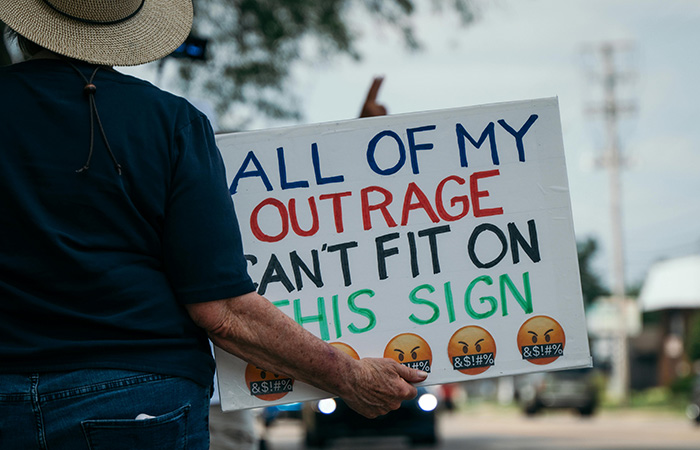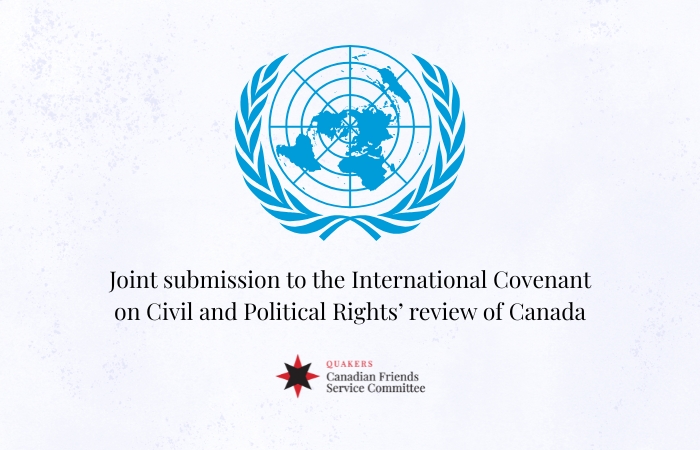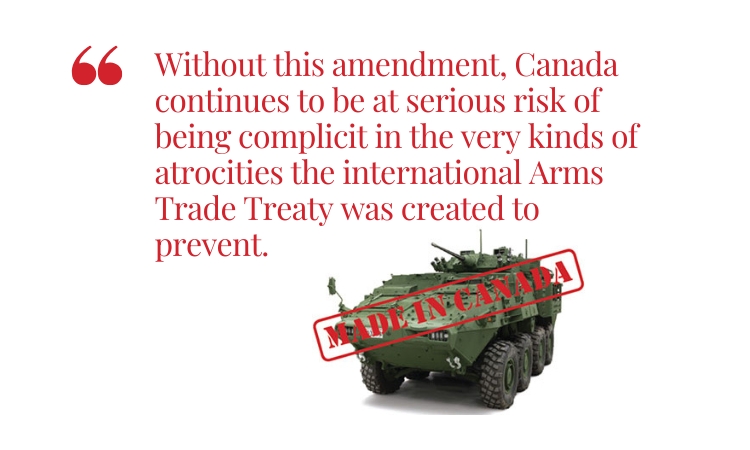
Here are Canadian Friends Service Committee (Quakers’) peace and social justice priorities for Canada’s budget
August 28, 2025
Marking the 18th Anniversary of the adoption of the UN Declaration on the Rights of Indigenous Peoples
September 13, 2025![]() Many have heard the phrase, “If you’re not angry, you’re not paying attention.” Across the political spectrum outrage is often used to encourage action on any number of social issues. Yet feeling anger—or other intense emotions like distress or despair—and taking meaningful action to address a social problem aren’t necessarily the same thing.
Many have heard the phrase, “If you’re not angry, you’re not paying attention.” Across the political spectrum outrage is often used to encourage action on any number of social issues. Yet feeling anger—or other intense emotions like distress or despair—and taking meaningful action to address a social problem aren’t necessarily the same thing.
One paper explored what people did when shown distressing images. The researchers found that when pictures were negative but not too intense, people tended to reappraise the image—to think about what they were seeing differently. But as the images got more intense, people often just disengaged completely. In other words, feeling intense emotions may not cause effective actions to counter a problem, it could promote disengagement.
Some people refuse to look away from a problem and instead pay a lot of attention. But this can cause further issues. For example, people who watch a great deal of negative news coverage after events like extremist bombings are much more likely to develop symptoms of acute stress.
Other research has identified that when feeling distress many aren’t motivated to fully address its causes. Instead, they may do just enough so that their feeling of distress is temporarily alleviated.
An example might be feeling anxious about climate change and deciding to start recycling more conscientiously. This is what’s called single-action bias—taking an action (recycling) that couldn’t possibly address the problem or source of distress (climate change), but that can help in temporarily feeling calmer.

Network science has identified that the best predictor of who would become an activist around different social issues wasn’t how angry an individual was about the issue. The best predictor was what percentage of their family and friends was taking action. This could mean that taking action was most motivated not by intense emotions like outrage or despair about the issue, but by a desire to stay in good standing within one’s social networks.
Consistent with this, researchers have found that the strongest predictor of an intention to take meaningful climate action is the belief that other people are taking those actions too.
Based on such findings, one way to increase action would be to get those already addressing the problem to do so more publicly. This would make it easier for others to see those actions—installing solar panels, say—as already normal and not socially risky.
Research shows that anger can be beneficial in helping to quickly and decisively make simple choices. But when it comes to more complex social change work, what’s often needed is richer strategic thinking. To address a problem takes a clear analysis of what the problem is and a theory of how change can happen. This needed clarity and creativity may well be reduced by intense emotions like anger or distress.
Far from relying on the immediacy of emotion alone, social change actually requires a range of skills such as research, listening to different perspectives, and building bridges between parties to get them on board with a given cause.
Political scientists explain that single tactics such as protest marches are easy to ignore. Therefore effective activism requires a wide range of tactics, coordinated under an overarching vision for change. A database developed by Swarthmore College offers hundreds of case studies of nonviolent campaigns seeking change on a wide range of issues around the world. Seeing such case studies it becomes clearer why anger plays at most a limited role in making effective change happen.
This may help explain the finding that those who take social change actions are often surprisingly happy. It could be that feeling happier provides the inner resources to engage, and being more optimistic may leave people more likely to believe that change is actually possible, and therefore more likely to act.
Feeling a sense of purpose in life is vital for health, wellbeing, and as an antidote to despair. Taking pro-social action to improve one’s community, such as through volunteering, can also be highly beneficial for wellbeing.
In sum, engagement with social issues can be extremely beneficial both to society and to individuals. But the idea that angry or negative is necessary to motivate or sustain engagement isn’t necessarily true. Certainly outrage gets attention, but it has costs including reducing creativity and possibly if messages are too negative or extreme, also reducing engagement or even overall wellbeing.
This post originally appeared on Psychology Today. Check out our pamphlet Being a Quaker, Being an Activist (PDF) to learn more about effective activism.




